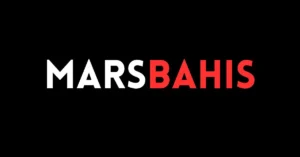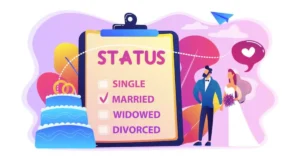In a digital world obsessed with visibility, where social feeds pulse with selfies and hashtags, a platform like GoodNever com might feel like an anomaly—or perhaps a quiet protest. It doesn’t promise virality, monetization, or algorithmic fame. It offers something far more unusual in today’s landscape: intentional silence, private presence, and emotional permanence.
Launched quietly in late 2023 with little more than a sparse homepage and a manifesto-style landing message, GoodNever com emerged not as a traditional social network or blogging platform but as something more elemental—a space for expression that expects nothing in return. No likes, no shares, no notifications. Just a digital mirror for the self.
But what exactly is GoodNever.com? Why is it gaining traction among a niche, privacy-conscious generation? And what does its growth say about where the internet might be headed?
This deep dive explores the architecture, philosophy, and growing user base of GoodNever com—offering readers a glimpse into the quieter side of digital life.
READ MORE: The Code Behind the Curtain: What Is 3381012544 and Why It Matters Now
What Is GoodNever com?
At its core, GoodNever.com is a minimalist digital journaling and publishing platform. It allows users to write, reflect, and share thoughts, entries, and digital notes—either privately, publicly, or semi-publicly.
But unlike Substack, Medium, or Instagram, it strips away the social layer. There are no follower counts, no commenting systems, and no trending tabs. Users can:
- Write entries (journal-style or essay-style)
- Tag entries by date or theme
- Choose visibility: private, shareable link, or open
- Encrypt entries for personal memory locks
- Download an entire archive as a single digital capsule
In its most popular use case, GoodNever.com is a cross between a private digital journal and a philosophical blog—with an emphasis on writing to remember, not to be remembered.
The Philosophy Behind the Name: Why ‘Good Never’?
The name GoodNever seems paradoxical. Why would a digital sanctuary call itself something that suggests impermanence or contradiction?
According to the platform’s sparse About page, the name is inspired by a line from a 1970s poem:
“What’s good never asks to be known, it just is.”
That idea—that meaning does not require recognition—permeates every design decision. The site’s interface is almost aggressively simple: black text on white background, no sidebar, no popups. The user experience centers not on engagement, but on expression.
In many ways, GoodNever com is designed for those who have grown weary of the noise.
Key Features and User Experience
While many platforms compete by adding features, GoodNever com competes by removing them. Here’s what makes it different:
1. Anonymous Profiles
Users can write under a pseudonym, random handle, or real name—without verification. There is no email required unless you want recovery access.
2. Entry Encryption
One of its most praised features is “memory encryption.” Users can encrypt entries with a password known only to them. These cannot be recovered without it—by design.
3. No Metrics
There are no view counts, no likes, no shares. Even public entries are devoid of public-facing analytics. The goal is to disconnect writing from validation.
4. Timelocked Entries
Users can lock entries for a future date—say, 1 year or 10 years. Once locked, even the user can’t access them until the timer expires. It’s a personal time capsule.
5. Archive Capsule
Every entry can be downloaded as part of a personal archive. These ZIP files include text, metadata, and a blockchain-anchored hash for tamper-proofing—offering a long-term digital record of personal growth.
Who Uses GoodNever.com and Why?
While the platform avoids gathering or publishing demographics, community feedback and usage patterns suggest four main user groups:
1. Digital Minimalists
People leaving major platforms like Facebook, Instagram, and even Reddit in search of calmer, quieter digital spaces.
2. Writers and Thinkers
Essayists, poets, and long-form writers who want to publish without worrying about SEO, audience size, or commercial success.
3. Privacy Advocates
Users disillusioned by surveillance capitalism, data tracking, or ad-based models. GoodNever’s no-cookie, no-ads, no-tracking policy is a breath of fresh air.
4. Mental Health Journalers
Therapists and patients alike recommend the platform for digital journaling because of its non-social design, allowing introspection without judgment.
READ MORE: FintechZoom.com Gold: How the Precious Metal Continues to Matter in 2025
GoodNever com vs Traditional Platforms
| Feature | GoodNever.com | Medium/Substack | Facebook/Instagram |
|---|---|---|---|
| User tracking | No | Yes | Yes |
| Public interaction | None | Comments allowed | Likes/comments |
| Content discovery | Organic or none | Algorithmic | Algorithmic |
| Monetization tools | None | Subscriptions | Ads and sponsors |
| Data portability | Full (downloadable) | Partial | Limited |
The key takeaway? GoodNever.com is built not to grow fast, but to last long.
Cultural Significance: Why Now?
The rise of GoodNever com coincides with a growing fatigue with traditional social media. After more than a decade of algorithms dictating what we see and how we feel, users are starting to push back.
Trends Driving Adoption:
- Data privacy backlash (post-Cambridge Analytica and countless breaches)
- Mental health concerns related to likes, comparisons, and algorithmic feeds
- Reinterest in journaling as a form of mental self-care
- Web3 backlash — a return to basics after the over-hype of decentralization
GoodNever com doesn’t promise decentralization or crypto integration. It promises peace—and in 2025, that’s a radical offer.
Limitations and Critiques
No platform is perfect. Despite its strengths, GoodNever com faces limitations and fair criticism:
1. No Recovery System
Lose your encryption password or forget your pseudonym? There’s no way to recover entries. This can be devastating for regular users who treat it as a diary.
2. Lack of Collaboration Tools
Writers looking for shared editing, feedback, or collaborative notes won’t find these features here.
3. No Monetization Options
Writers who rely on digital income will find the platform unsuitable for building an audience or earning.
4. Low Discoverability
Public entries are nearly unsearchable unless shared manually. That’s the point—but it limits reach.
What’s New in 2025
The platform has rolled out several low-profile but meaningful updates:
- Voice-to-Text Journaling: Secure, local transcription for audio notes
- Print-to-Zine Export: Converts monthly entries into a printable PDF mini-journal
- Private Tags: Allows grouping of entries without visible metadata
- Offline Mode: Users can write offline and sync later, increasing accessibility in low-connectivity zones
Where Is It Headed?
GoodNever com may never be a billion-user platform. But that’s not its goal. According to its founding team (anonymously credited as “A, M, and R”), the mission is simple:
“We don’t want to build a network. We want to build a record of thought—quiet, safe, and yours.”
Future roadmap notes hint at self-hosted options, custom domain support, and open-source publishing modules, which could attract digital librarians, artists, and archivists.
Conclusion: Should You Use GoodNever com?
If you’re seeking connection, followers, or visibility, this isn’t your platform.
But if you’re looking to document your life privately, to write without audience anxiety, or to create a long-term personal archive, GoodNever com might be exactly what you need.
In a world shouting for attention, it dares to whisper. And sometimes, the whisper is what lingers.
FAQs
1. Is GoodNever.com really private?
Yes. The platform does not track users, log IP addresses, or store identifiable data. Encryption is local, and private entries are not indexed.
2. Can I recover a lost password or encryption key?
No. By design, GoodNever.com cannot reset or recover encrypted content. Users must securely store their credentials.
3. Is GoodNever.com free to use?
Yes. As of 2025, all core features are free. Donations are accepted but not required. There are no ads or subscription tiers.
4. Can I publish public essays or writings?
Yes. Users can make any entry publicly viewable via a direct link or on the sparse public wall. However, these entries are not promoted or algorithmically shared.
5. Is GoodNever.com open-source or self-hostable?
Not yet, but the team has announced plans to release a self-hosted version and publishing API by late 2025.









